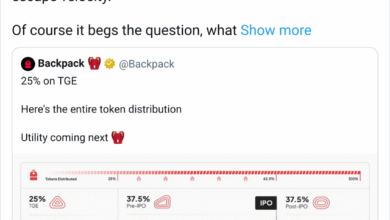

In a recent update on X (formerly Twitter), the chief technology officer of Ripple Labs, David Schwartz, brought attention to a recent development involving the United States Securities and Exchange Commission’s (SEC) appeal.
According to Schwartz, the SEC is seeking an appeal at this specific point based on its interpretation that the legal case has not yet concluded. This understanding affords involved parties the privilege to appeal after the finalization of the case. This procedural strategy is intended to enhance the legal proceedings’ efficiency and avoid continuous disruptions to the main case due to multiple appeals concerning minor decisions.
Following Judge Analisa Torres’ July 13 ruling that XRP (XRP) is not a security when sold on digital asset exchanges, the SEC has since submitted an appeal. Although prompted by the favorable verdict for Ripple, this move by the SEC focuses on an unforeseen development within the legal proceedings.
Yes. A party that loses on any claim or issue in their suit is entitled to appeal any adverse rulings at the conclusion of the suit. The SEC is asking for permission to appeal here because the suit is not complete yet for any party.
You can see why there would be a rule like…
— David “JoelKatz” Schwartz (@JoelKatz) August 18, 2023
Schwartz stressed that combining appeals is vital to improve things, with separate appeals likely to make the legal process even longer.
However, the exec clarified a rule for special situations. The SEC argues that the unique situation, in this case, is a reason to do things differently. It suggests stopping the process until the appeal is settled, but Ripple disagrees.
Ripple believes that even if the SEC can appeal, the main lawsuit should proceed while the appeal process happens. This matches the idea of letting the trial continue and looking at appeals carefully when everything else is done.
Related: Ripple, ConsenSys participate in Mastercard program to promote CBDC innovation
Schwartz provided more information because of rumors in the Bitcoin community about discussions that the SEC might want to appeal Torres’ decision to higher courts.
The outcome of the legal disagreement between Ripple Labs and the SEC could be influenced by the court’s choice about whether to accept the appeal request.
Magazine: Deposit risk: What do crypto exchanges really do with your money?




